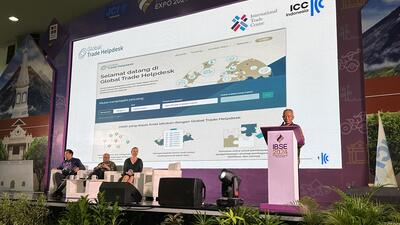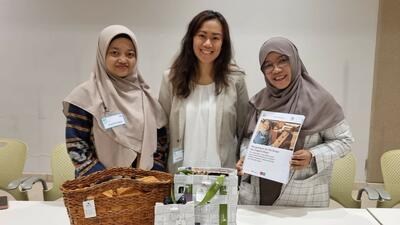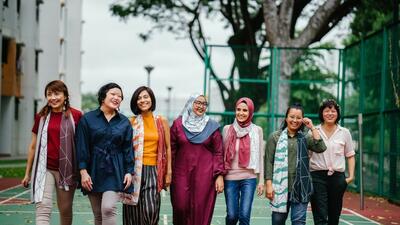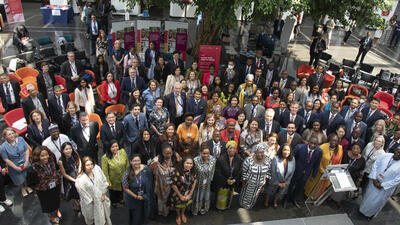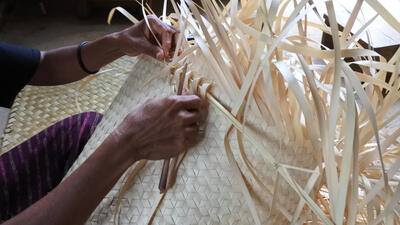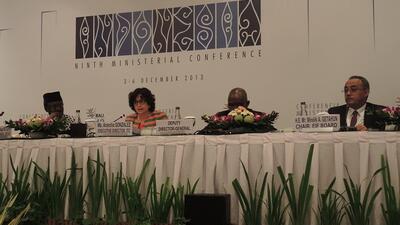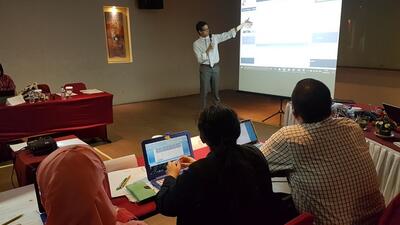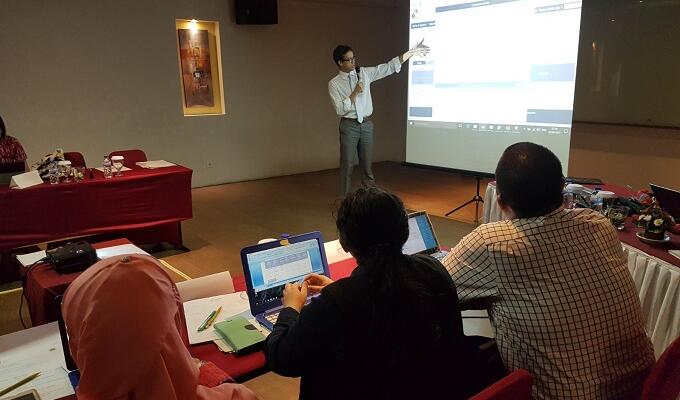
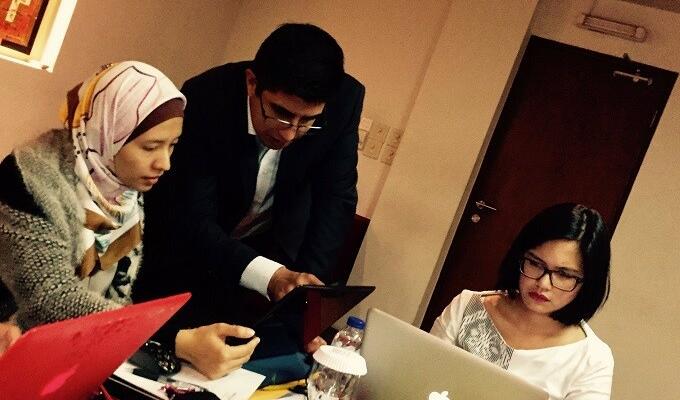
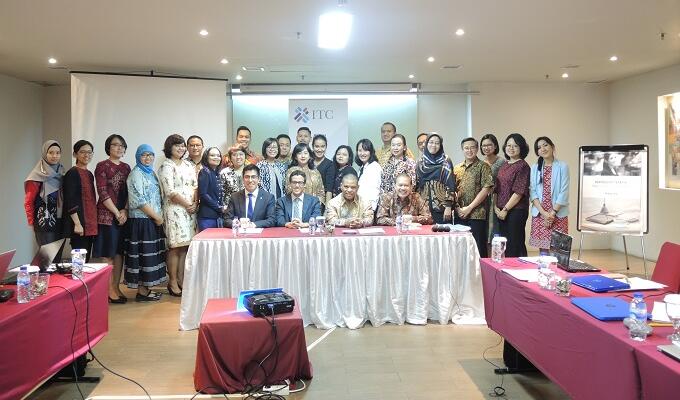
Training Indonesian diplomats to spot export potential, promote trade partnerships
Twenty-four Indonesian diplomats are better equipped to revitalize the country’s trade performance by helping businesses tap into foreign markets, as a result of market analysis training by the International Trade Centre (ITC).
The 19-23 June programme took place in Bali, Indonesia, as requested by the Ministry of Foreign Affairs. ‘We need updated information on market access and market potential, import-export regulations and barriers to goods, both tariff and non-tariff,’ said Ridwan Hassan, Special Advisor to the Minister on Economic Diplomacy, in his welcoming remarks. ‘This is absolutely necessary for decision-making, to intensify Indonesia’s export market opportunities overseas.’
Indonesia’s export sector has been hit hard in recent years by falling prices for commodities such as coal and oil. More efforts will be required to meet its export growth target of 5.6% in 2017.
Participants, who were recruited from Indonesia’s economic diplomacy programme, started with an introduction to international trade concepts before moving to the application of advanced analytical techniques. The goal was to contribute to increased trade and export diversification by equipping the diplomats with the tools needed to make informed, data-driven decisions in economic negotiations and while promoting Indonesian businesses to prospective foreign customers.
The foreign ministry scheduled visits to local exporters and trade authorities so that participants could put into practice the new skills and knowledge acquired during the training. While some small and medium-sized Balinese companies are beginning to use e-commerce and are reaching beyond traditional Asian markets to export to places such as the United States and South Africa, most still largely rely on local tourism to sell their handicrafts.
Businesses were also able to share concerns with ministry officials about the practical problems they were encountering while exporting and importing merchandise. These included delays related to the preparation of export permits and certifications; requests for fumigation certificates when shipping wooden furniture to exhibitions abroad; and difficulties obtaining tariff reductions for raw materials and inputs brought into Indonesia simply to be re-processed for export. The CEO of Udyana, a Balinese forwarding company, was happy to deepen its relationship with the Ministry of Foreign Affairs, noting that “diplomats have a key role to play in helping local companies understanding market trends and connecting with foreign buyers”.
The problems reported by the Balinese companies were broadly in line with the findings of an ITC survey of Indonesian businesses in 2013. Representatives of the provincial office for Trade and Industry reported that steps have been taken to streamline import procedures, but that efforts were still needed to map out the regulatory and procedural obstacles, in Indonesia and in destination markets, that lay behind the local companies’ concerns.
Overall, the training was well received by the participants, all of whom reported that it had enhanced their market research skills and equipped them to make better trade-related decisions.
‘Now I know much better how to interpret international trade statistics and analyse all those numbers,’ said Wida Irvany, Directorate of African Affairs.
‘Being able to conduct data driven market research will allow us to make negotiations with our ASEAN partners more profitable for Indonesian SMEs,’ said Palupi Sukyantini Mustajab, who works in the ministry’s directorate of economic affairs for the Association of Southeast Asian Nations (ASEAN).
The next steps for each of the diplomats, which during the training drafted a ‘market pointer’ - a brief report describing market opportunities for a selected Indonesian product in an attractive foreign market - will be to prepare an action plan for their forthcoming foreign postings, which will include France, South Africa, and the United Kingdom.
The recent training in Bali, which was funded by the World Bank’s Scholarships Program for Strengthening Reforming Institutions (SPIRIT) project, was the product of a request from the foreign ministry’s Centre for Education and Training for ITC to develop a tailored programme for diplomats overseeing trade and market-related initiatives.
’We were actively looking for partners who have a strong experience in organizing solid courses on the subject,’ explained Eko Hartono, who heads the Centre for Education and Training. ‘ITC has worked with many governments and business sectors in developing countries to strengthen their knowledge and capacity on international trade through training and research.’
ITC and the Indonesian Ministry of Foreign Affairs are exploring possibilities to expand the training initiative, at a moment when Indonesia is actively seeking to bolster its trade and investment ties with countries around the world. As a member of the Association of Southeast Asian Nations (ASEAN) Indonesia is part of the bloc’s free trade agreements with countries including Australia, China, India Australia and New Zealand. In addition, Jakarta has started negotiating bilateral trade agreements with India, Chile, Australia, South Korea and the European Free Trade Association, and is in the process of revising an existing agreement with Pakistan to enhance its utilization by businesses in both countries.
ITC and Indonesia are also exploring possibilities for enhancing bilateral trade and investment with countries in Africa. Current ITC initiatives are working to bolster trade and investment ties between Africa and both China and India.
ITC market analysis tools, which are free for users in developing countries, are available at http://www.intracen.org/Itc/market-info-tools/overview/




